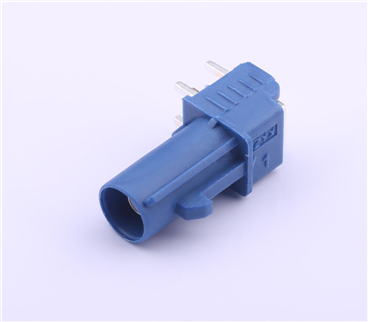Service hotline
+86 0755-83975897
 en
en Release date:2025-02-22Author source:KinghelmViews:1301

ABI Research In the private network market, private network operators are becoming strong competitors for traditional mobile network operators (MNO). Private network operators have a spectrum dedicated to private networks, often for specific industrial markets such as oil and gas, utilities, mining, or manufacturing. Their expertise in the vertical is an impressive difference compared to mobile operators that focus on consumer connectivity.
Lizzie Stokes, Internet of Things Network and services analyst at ABI Research, said: " Private network operators use industry-specific knowledge when purchasing spectrum to ensure that they meet the coverage and the quality of service (QoS) requirements of their target industries. Their unique investment in the industry is attractive to the industrial Internet of Things (IIoT) customers, which often have unique communications needs.”
Traditional mobile operators like Verizon (Verizon) and Vodafone (Vodafone) have historically had advantages in acquiring spectrum, often winning in spectrum auctions because of their important role in serving consumers' smartphones. However, as more IIoT customers adopt dedicated cellular networks, users are increasingly preferring niche carriers that tailor their spectrum assets to their coverage and performance requirements.
For example, utility customers typically need to achieve wide-area coverage, low-latency, and elastic connectivity in remote areas. Anterix Is a dedicated network operator for utilities that purchases low-band spectrum so that its customers can balance capacity and coverage in remote areas. Traditional mobile network operators are motivated to serve densely populated areas to reap rewards from consumers; while private network operators' decisions are entirely driven by the needs of industrial customers.
Getting the spectrum to meet the demands of the industrial market may be an unstable and constrained strategy. Spectrum is an expensive asset, and traditional mobile network operators can afford to support millions of high-throughput consumer devices. Private network operators must package the spectrum they provide with more profitable, specialized dedicated network services to avoid relying entirely on one asset.
While current private network operators such as Anterix, Ambra Solutions, Citymesh, Tampnet, and Globalstar have found profitable target markets or favorable regulatory environments to succeed, many in the industry believe that there will be no more private network operators entering the market.
Industry experts believe that the cost and regulatory burden of having a spectrum are not low. New private network operators may also encounter difficulties as more countries release national spectrum schemes in the United States (similar to the CBRS), which provide customers with alternatives to both traditional and private network operators when purchasing spectrum. Some private network operators argue that they are still able to differentiate themselves from the spectrum program available nationally by constantly investing in spectrum that regulators often don't provide, such as low-band spectrum.
Stokes: " Today, while these unconventional spectrum providers may be too niche to make money outside their target markets, their existence proves that specialization is an important competitive advantage in the dedicated wireless market."As spectrum deployment patterns diversify, professional operators will continue to emphasize their vertical expertise.










Copyright © Shenzhen Kinghelm Electronics Co., Ltd. all rights reservedYue ICP Bei No. 17113853
